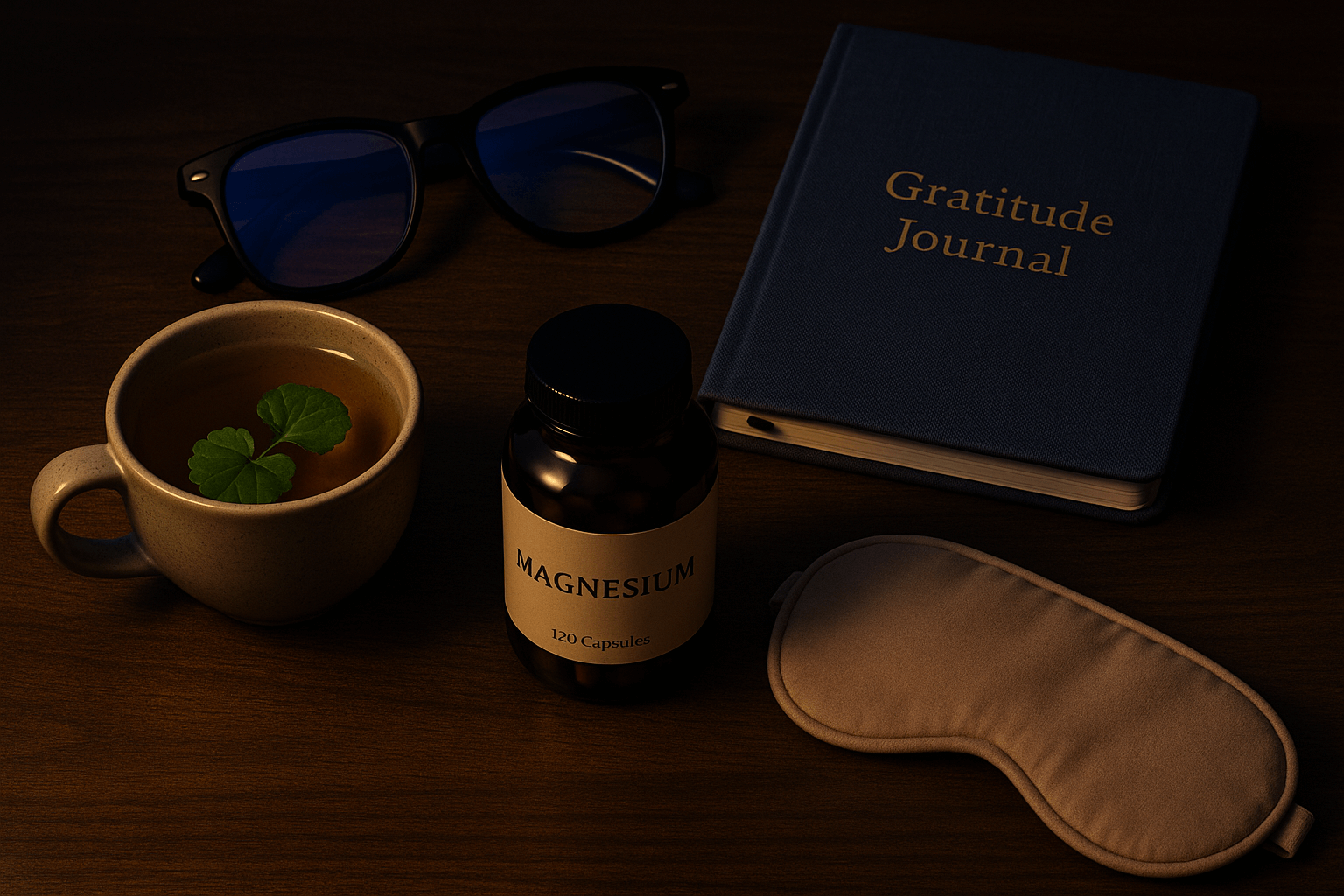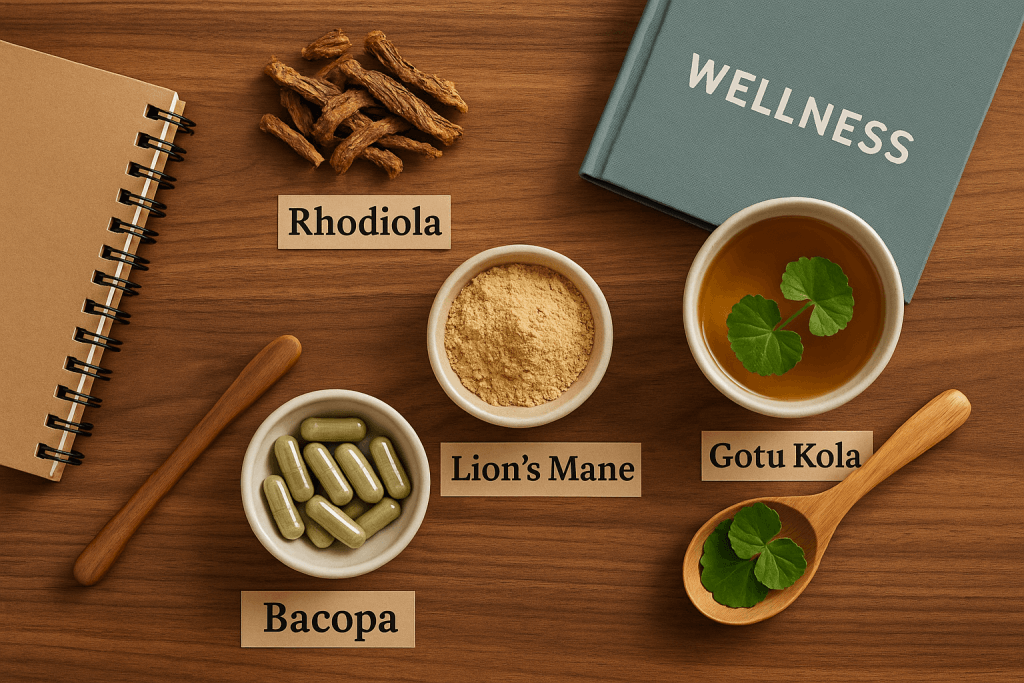Physical Address
304 North Cardinal St.
Dorchester Center, MA 02124
Physical Address
304 North Cardinal St.
Dorchester Center, MA 02124

Struggling with mental fatigue or cloudy thinking? This guide explores proven brain fog remedies—herbs, habits, and daily routines to sharpen your mind naturally.

If your mind feels sluggish, your focus drifts, or words just won’t come as easily, you’re not alone. Brain fog isn’t a medical condition, but it’s a frustrating symptom linked to stress, poor sleep, nutritional gaps, and even long-haul illness. It’s like your mental bandwidth is on low power mode—slowing down productivity, creativity, and memory.
Enter the world of natural brain fog remedies. From science-backed herbs like Lion’s Mane and Rhodiola to daily routines that optimize neurotransmitters and reduce inflammation, there are effective, non-pharmaceutical ways to clear the haze. This guide breaks down what causes brain fog—and what actually works to reverse it.
Let’s start by understanding what’s really going on in your head when brain fog hits.
Brain fog isn’t just “in your head.” It’s a real physiological response to imbalances in your body and lifestyle. Understanding the root causes is key to reversing the fog naturally—without stimulants or guesswork.
Here are the most common culprits behind cognitive fatigue:
Sleep is when your brain detoxifies, consolidates memory, and resets neurotransmitters. Just one night of poor sleep can slow reaction time and short-term memory. Over time, chronic sleep debt leads to sluggish thinking and emotional reactivity.
Solution: Reset your circadian rhythm with morning sunlight, consistent bedtimes, and no blue light after 9 PM.
Stress isn’t always bad—but chronic stress floods your system with cortisol, which over time can shrink the hippocampus (your memory hub) and weaken focus.
Solution: Use adaptogens like Rhodiola or Ashwagandha to modulate your stress response naturally.
Your brain needs raw materials to function. Deficiencies in B vitamins, magnesium, omega-3s, or iron can slow nerve signaling and create mental fog. Inflammatory foods also play a major role.
Solution: Eat whole foods, boost healthy fats, and consider adding nootropic foods like turmeric, eggs, and leafy greens.
Your brain burns 20% of your body’s oxygen. When you don’t move enough, oxygen and glucose delivery to brain tissue declines—leading to slower processing, poor memory recall, and fatigue.
Solution: Move every 60–90 minutes and try morning exercise to kickstart brain function.
Inconsistent energy levels can cause cyclical brain fog, especially in women (during PMS or perimenopause) or those with insulin resistance. Blood sugar dips drain mental energy quickly.
Solution: Balance blood sugar with protein-rich meals and consider natural hormone-balancing herbs like maca or Vitex.
Bottom Line:
Brain fog isn’t a mystery—it’s a message. When your body is undernourished, overstimulated, or out of sync, the brain slows down to protect itself. Identifying and addressing the cause is the first step to clearer thinking and better mental energy.

When your brain feels overloaded, sluggish, or scattered, certain natural nootropics and adaptogens can help restore clarity, energy, and calm focus. These plant-based remedies work with your body to regulate stress, reduce inflammation, and enhance neurotransmitter balance—without the crash that comes from stimulants.
Below are the most science-backed herbal focus supplements for brain fog relief:
One of the most studied natural nootropics, Lion’s Mane is known for stimulating nerve growth factor (NGF), which supports brain plasticity and repair.
Use 500–1,000 mg of daily extract; look for dual-extracted powders or capsules.
This powerful adaptogen helps the brain stay alert under stress and combats both physical and mental fatigue. Rhodiola modulates cortisol, reduces oxidative stress, and supports mitochondrial function.
Use 200–400 mg of standardized extract in the morning; avoid late-day dosing.
Traditionally used in Ayurvedic medicine, Bacopa enhances memory formation, information retention, and calm cognition. It supports the cholinergic system and reduces anxiety-related brain fog.
Use 300–600 mg per day of a bacoside-A standardized extract; best with fat-containing meals.
One of the oldest living tree species, Ginkgo enhances cerebral blood flow, which improves oxygen delivery and nutrient transport to brain cells.
Use 120–240 mg per day of standardized extract (24% flavone glycosides).
Known as “the herb of longevity” in Ayurveda, Gotu Kola supports mental calm and cognitive clarity. It reduces anxiety, promotes better blood flow, and supports neurogenesis.
Use 300–500 mg of extract or as a tea infusion; gentle enough for long-term use.
Pro Tip:
Stacking these herbs mindfully creates synergy. For example:
Morning stack: Rhodiola + Lion’s Mane
Evening focus: Bacopa + Gotu Kola
Always start with one herb at a time, and source standardized, organic products to ensure safety and efficacy.
Even the best nootropic stack won’t work if your everyday choices are sabotaging your brain chemistry. Brain fog remedies aren’t just about what you add—they’re just as much about what you remove. Here’s what could be keeping your mind in a haze:
Highly processed foods create neuroinflammation and blood sugar crashes—two major triggers for cognitive fatigue.
Fix: Prioritize whole foods with steady energy release—think leafy greens, avocado, berries, and omega-3s.
Your first meal programs your brain for the day. Low-protein or carb-heavy breakfasts = rollercoaster blood sugar and sluggish executive function.
Fix: Start with 20–30g of protein (e.g., eggs, Greek yogurt, hemp protein, sardines).
Even mild dehydration (just 1–2% fluid loss) can impair attention, working memory, and processing speed.
Fix: Aim for 2–3 liters of water daily, and add electrolytes or lemon for better absorption.
Extended exposure to screens bombards your eyes and brain with blue light, which can impair melatonin release and stress your nervous system.
Fix: Use blue-light filters, take screen breaks every 60 minutes, and avoid screens 1–2 hours before bed.
Your brain thrives on oxygen and movement. Sedentary routines restrict circulation, while poor posture compresses your diaphragm and blood flow to the brain.
Fix: Take brisk walks, stretch, or try standing desk intervals. Breathe deeply and get outdoors daily.
Your physical and digital environment affects cognitive load. When your brain is bombarded with tabs, to-do lists, and noise, your focus crashes.
Fix: Try minimalist workspaces, noise-cancelling headphones, or Pomodoro focus blocks. In short: Brain fog often results from cumulative stressors—poor food choices, dehydration, tech overuse, and mental clutter. Addressing these hidden contributors sets the stage for nootropics and natural remedies to actually work.

Consistent routines anchor your brain’s rhythm. When you create structured, low-stress habits in the morning and evening, you align your body’s natural cycles for clearer thinking, better energy, and sharper memory.
Below is a sample set of routines designed specifically to combat brain fog using natural brain fog remedies, movement, and light-based biohacks.
Start your day with habits that stabilize cortisol, promote neurotransmitter balance, and energize your mind.
Expose your eyes to natural morning light for 5–10 minutes. This regulates melatonin/cortisol rhythms and wakes up your brain faster than caffeine.
✅ Why it works: Sets circadian rhythm, improves mood, and boosts serotonin.
Before coffee, drink a glass of filtered water with a pinch of sea salt or electrolyte mix. Dehydration is a silent fog-trigger.
✅ Why it works: Replenishes electrolytes after sleep, jumpstarts mental clarity.
Take your focus supplements with a protein-rich breakfast. For example:
✅ Why it works: Supports neurotransmitters like dopamine and acetylcholine.
Gentle cardio (like brisk walking, rebounding, or yoga) boosts blood flow and oxygen delivery to your brain.
✅ Why it works: Increases BDNF (brain-derived neurotrophic factor), clears mental fog fast.
After your stack and movement, get 60–90 minutes of deep, distraction-free work while your brain is most alert.
✅ Why it works: Leverages natural morning dopamine and supports productivity.
Winding down with intention resets your brain chemistry for deep rest and cognitive reset overnight.
Ditch screens or wear blue-light-blocking glasses. Swap scrolling for journaling, gentle stretching, or herbal tea.
✅ Why it works: Boosts melatonin, lowers cortisol, preps brain for repair mode.
Consider a sleep stack like:
✅ Why it works: Supports neurotransmitter recycling, reduces nighttime brain noise
Take 5–10 minutes to review your day, brain dump tasks, and set intentions for tomorrow. Turn off Wi-Fi and put your phone in airplane mode.
✅ Why it works: Clears mental clutter, reduces overthinking, increases deep sleep quality.
Pro Tip: If you wake up foggy, check your sleep metrics—was your deep sleep interrupted? Did you eat too close to bedtime? Your evening routine directly impacts your next morning’s mental clarity
Brain fog doesn’t need to be your baseline. It’s often a signal—not a sentence—that something in your routine, diet, or stress load is off. The good news? You don’t need a prescription to start reversing it.
Natural brain fog remedies like Lion’s Mane, Rhodiola, Bacopa, and Gotu Kola offer gentle but powerful cognitive support. But their benefits are amplified when you pair them with consistent, health-forward choices: nutrient-dense meals, quality sleep, movement, and stress relief.
Start simple—hydrate well in the morning, get real sunlight, swap stimulants for nootropics, and set a bedtime that respects your brain’s repair cycle. Over time, these small tweaks retrain your body’s rhythm, rebalance neurotransmitters, and improve your mental clarity without harsh side effects.
Whether you’re navigating burnout, screen fatigue, hormonal changes, or ADHD-like symptoms, a holistic approach grounded in plant-based support and lifestyle upgrades can help you reclaim your focus, creativity, and calm.
You deserve a mind that feels sharp, centered, and fully switched on. And with the right tools, you can build it—naturally.
1. What are the most effective natural brain fog remedies? The most effective natural brain fog remedies include adaptogens like Rhodiola Rosea and Ashwagandha, nootropics such as Lion’s Mane and Bacopa Monnieri, and lifestyle changes like improving sleep quality, hydration, and nutrient-dense meals. These support cognitive clarity without relying on stimulants.
2. Can herbal supplements really help with brain fog? Yes, clinical studies support the use of certain herbal supplements as brain fog remedies. Herbs like Ginkgo Biloba improve blood flow to the brain, while Gotu Kola and Lion’s Mane enhance memory and reduce mental fatigue by supporting nerve regeneration and neurotransmitter balance.
3. What causes brain fog in the first place? Common causes of brain fog include chronic stress, poor sleep, blood sugar imbalances, dehydration, nutrient deficiencies, and excessive screen time. Addressing these root issues with both natural supplements and daily habit changes can significantly reduce symptoms
4. How long does it take for brain fog remedies to work? Results vary, but many people notice improvements within 1 to 3 weeks of consistent use. Herbal brain fog remedies like adaptogens may take time to build up in your system, especially when paired with better hydration, sleep, and dietary choices
5. Are there any side effects to natural brain fog remedies? Most herbal remedies for brain fog are considered safe when used appropriately. However, some may interact with medications or cause mild side effects like digestive upset or drowsiness. It’s best to consult a healthcare provider before starting a new supplement routine.